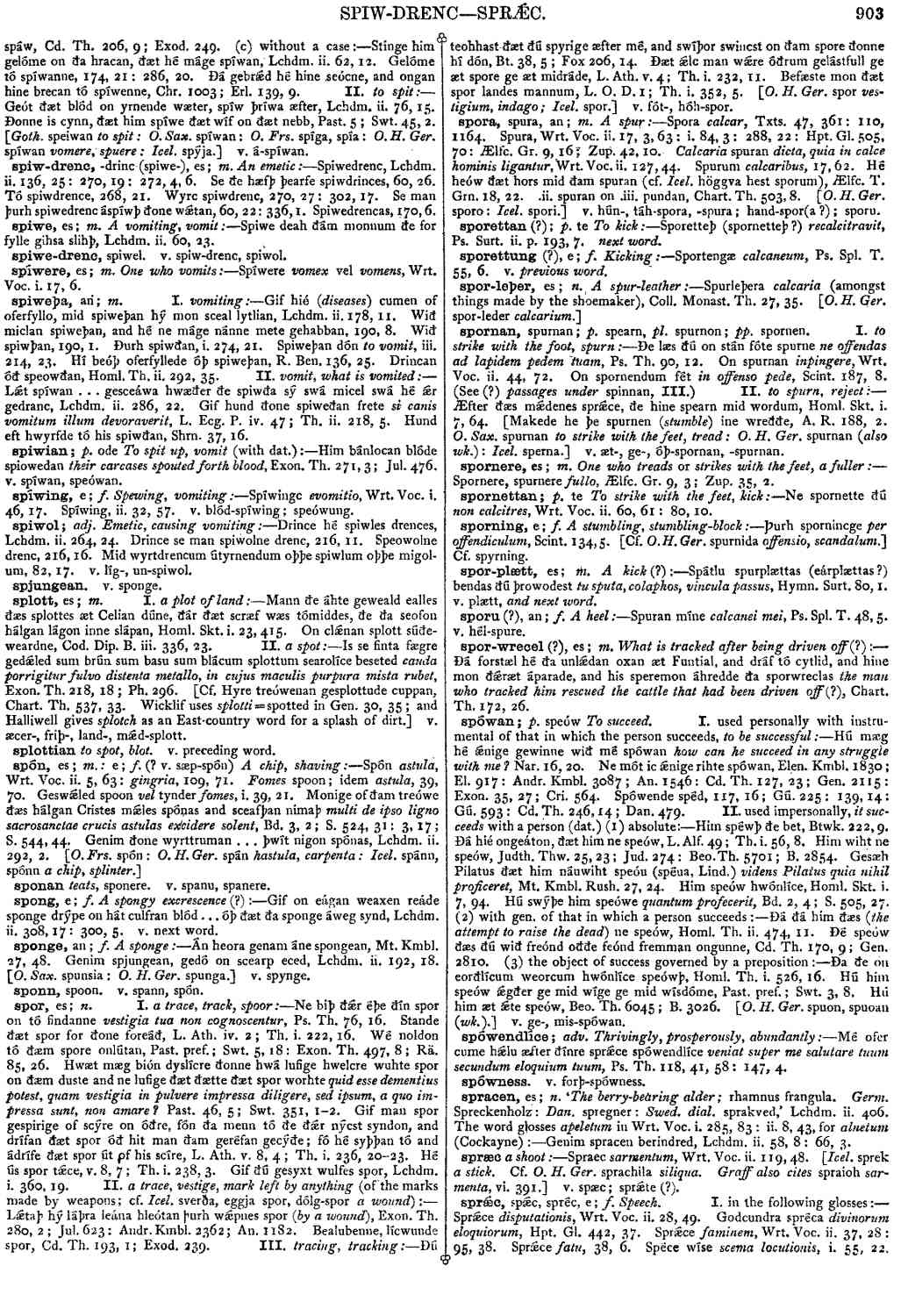spówan
- verb [ strong ]
-
Hú mæg hé ǽnige gewinne wið mé spówan
how can he succeed in any struggle with me?
- Nar. 16, 20.
-
Ne mót ic ǽnige rihte spówan,
- Elen. Kmbl. 1830; El. 917: Andr. Kmbl. 3087; An. 1546: Cd. Th. 127, 23; Gen. 2115: Exon. 35, 27; Cri. 564.
-
Spówende spéd,
- 117, 16; Gú. 225: 139, 14: Gú. 593: Cd. Th. 246, 14; Dan. 479.
-
Him spéwþ ðe bet,
- Btwk. 222, 9.
-
Ðá hié ongeáton, ðæt him ne speów,
- L. Alf. 49; Th. i. 56, 8.
-
Him wiht ne speów,
- Judth. Thw. 25, 23; Jud. 274: Beo. Th. 5701; B. 2854.
-
Gesæh Pilatus ðæt him náuwiht speóu (spéua, Lind.)
videns Pilatus quia nihil proficeret
,- Mt. Kmbl. Rush. 27, 24.
- Him speów hwónlíce. Homl. Skt. i. 7, 94.
-
Hú swýþe him speówe
quantum profecerit
,- Bd. 2, 4; S. 505, 27.
-
Ðá ðá him ðæs (
the attempt to raise the dead
) ne speów,- Homl. Th. ii. 474, 11.
-
Ðé speów ðæs ðú wið freónd oððe feónd fremman ongunne,
- Cd. Th. 170, 9; Gen. 2810.
-
Ða ðe on eorðlícum weorcum hwónlíce speówþ,
- Homl. Th. i. 526, 16.
-
Hú him speów ǽgðer ge mid wíge ge mid wísdóme,
- Past. pref.; Swt. 3, 8.
-
Hú him æt ǽte speów,
- Beo. Th. 6045; B. 3026.
Bosworth, Joseph. “spówan.” In An Anglo-Saxon Dictionary Online, edited by Thomas Northcote Toller, Christ Sean, and Ondřej Tichy. Prague: Faculty of Arts, Charles University, 2014. https://bosworthtoller.com/28542.
Checked: 0